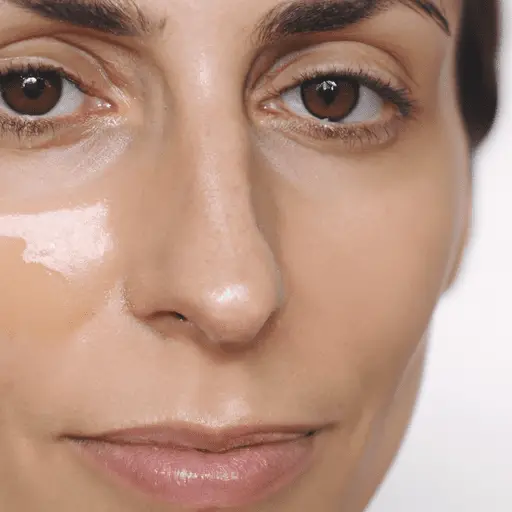-
Table of Contents
- Treating Hyperpigmentation: Brighten Uneven Skin Tone
- Key Takeaways
- Introduction: Understanding Hyperpigmentation
- Topical Treatments for Hyperpigmentation
- Laser Therapy and Chemical Peels
- Brightening Skincare and Sun Protection
- FAQ Section
- 1. Can hyperpigmentation be completely cured?
- 2. How long does it take to see results from hyperpigmentation treatments?
- 3. Are there any natural remedies for hyperpigmentation?
- 4. Can diet affect hyperpigmentation?
- 5. Can hyperpigmentation return after treatment?
- Conclusion: Achieving an Even Skin Tone
- Further Analysis
Treating Hyperpigmentation: Brighten Uneven Skin Tone

[youtubomatic_search]
Key Takeaways
- Hyperpigmentation is a common skin condition that can be treated with various methods.
- Topical treatments, laser therapy, and chemical peels are among the most effective treatments for hyperpigmentation.
- Consistent use of sunscreen and brightening skincare products can help prevent and manage hyperpigmentation.
- Professional treatments should be considered for severe cases of hyperpigmentation.
- It’s crucial to consult with a dermatologist before starting any treatment for hyperpigmentation.
Introduction: Understanding Hyperpigmentation
Hyperpigmentation is a common skin condition characterized by dark patches on the skin. This condition occurs when the skin produces more melanin, the pigment that gives skin its color. Factors such as sun exposure, hormonal changes, age, and skin injuries can trigger hyperpigmentation. This article explores various treatments for hyperpigmentation and how to achieve an even skin tone.
Topical Treatments for Hyperpigmentation
Topical treatments are often the first line of defense against hyperpigmentation. These treatments contain active ingredients that inhibit the production of melanin. Some of the most effective topical treatments include:
- Hydroquinone: This is a powerful skin-lightening agent that works by inhibiting the enzyme tyrosinase, which is crucial for melanin production.
- Retinoids: These compounds, derived from vitamin A, help to speed up skin cell turnover, reducing the appearance of dark spots.
- Vitamin C: This antioxidant not only brightens the skin but also protects it from damage caused by free radicals and UV radiation.
According to a study published in the Journal of Clinical and Aesthetic Dermatology, topical treatments can significantly improve hyperpigmentation, especially when used consistently and in combination with sun protection.
Laser Therapy and Chemical Peels
For severe cases of hyperpigmentation, professional treatments such as laser therapy and chemical peels may be recommended. Laser therapy uses focused light energy to break down the excess melanin in the skin, while chemical peels involve the application of a chemical solution to remove the top layer of the skin, revealing a brighter and more even complexion underneath.
Dr. Susan Taylor, a renowned dermatologist, states that these treatments can be highly effective but should be performed by a qualified professional to avoid potential side effects such as skin irritation and further pigmentation.
Brightening Skincare and Sun Protection
Brightening skincare products can help to enhance the results of hyperpigmentation treatments. These products often contain ingredients like niacinamide, licorice root extract, and kojic acid, which have been shown to lighten dark spots and improve skin tone.
Moreover, consistent use of sunscreen is crucial in managing hyperpigmentation. The American Academy of Dermatology recommends using a broad-spectrum sunscreen with an SPF of 30 or higher every day, even on cloudy days, as UV rays can penetrate clouds and windows.
FAQ Section
1. Can hyperpigmentation be completely cured?
While hyperpigmentation can be significantly reduced with treatment, it may not be completely cured, especially if it’s caused by ongoing factors such as hormonal changes or sun exposure.
2. How long does it take to see results from hyperpigmentation treatments?
The time it takes to see results can vary depending on the severity of the hyperpigmentation and the type of treatment used. However, most people start to see improvements within 2-3 months of consistent treatment.
3. Are there any natural remedies for hyperpigmentation?
Some natural ingredients, such as turmeric, aloe vera, and green tea, have been shown to have skin-lightening properties. However, they may not be as effective as medical treatments for hyperpigmentation.
4. Can diet affect hyperpigmentation?
While there’s no direct link between diet and hyperpigmentation, a healthy diet can support overall skin health and may enhance the effectiveness of hyperpigmentation treatments.
5. Can hyperpigmentation return after treatment?
Yes, hyperpigmentation can return after treatment, especially if the skin is exposed to the sun without protection or if the underlying cause of the hyperpigmentation is not addressed.
Conclusion: Achieving an Even Skin Tone
Treating hyperpigmentation and achieving an even skin tone requires a combination of effective treatments, consistent skincare, and sun protection. While topical treatments, laser therapy, and chemical peels can significantly reduce hyperpigmentation, the use of brightening skincare products and sunscreen can help to maintain the results and prevent further pigmentation. It’s crucial to consult with a dermatologist before starting any treatment for hyperpigmentation to ensure it’s suitable for your skin type and condition.
[youtubomatic_search]
Further Analysis
In conclusion, treating hyperpigmentation is a journey that requires patience and consistency. With the right treatments and skincare routine, it’s possible to brighten uneven skin tone and achieve a healthier, more radiant complexion. Remember, the key to successful treatment is understanding your skin and addressing the underlying causes of hyperpigmentation.

Leave a Reply